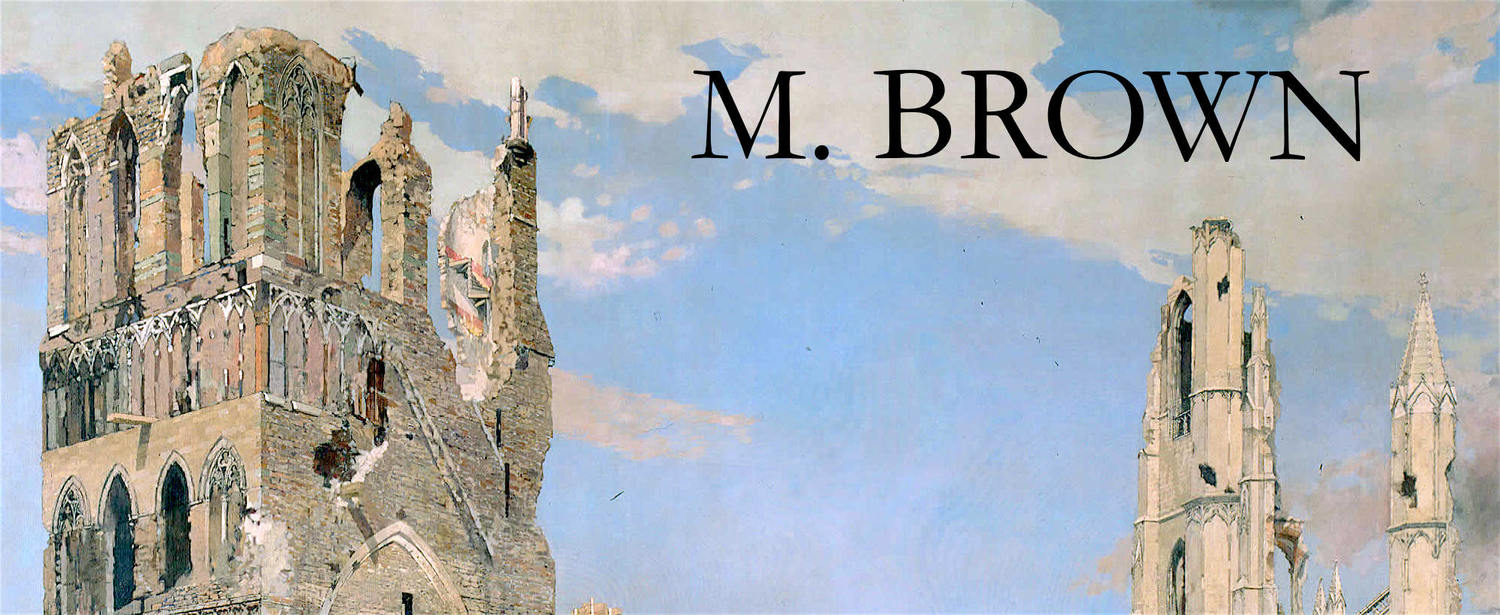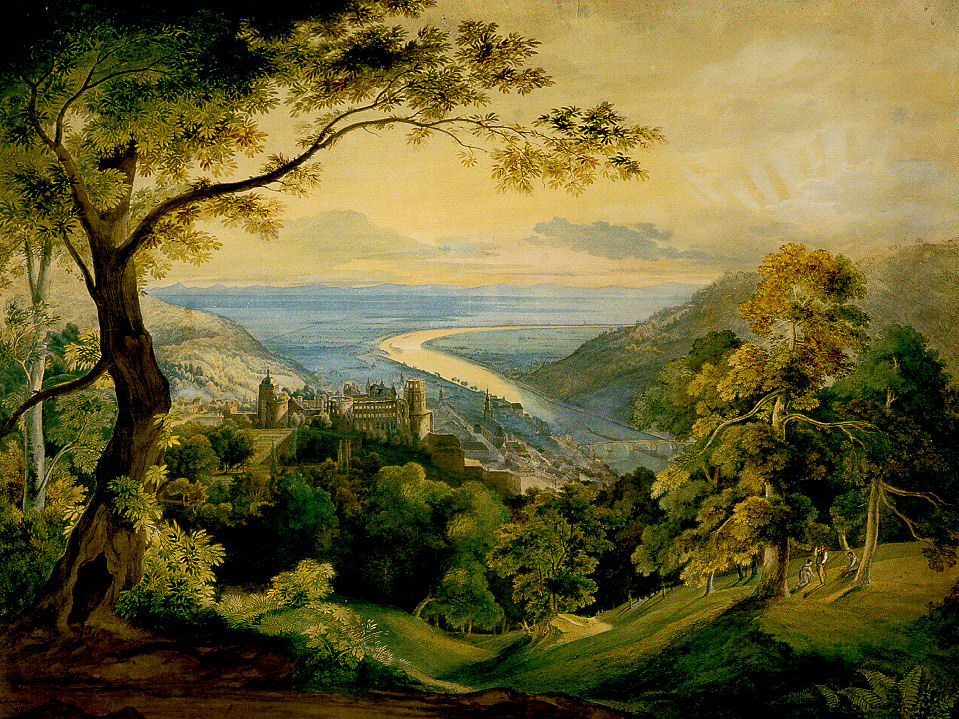Years I slept, wound and fused at the core of the nautilus. I dreamt
of the soil. My breath was methane, exhaled from cracks and cuffed
upon the Jura. Years split stone and shell. I woke up. I remember only
to forget. The ferns petrified in the cliff, the oak groves long axe-felled.
Columns of spotlight that spilled downward through the beechwood
ocean-heavy. Cloud knights and movies never made, spied in the sky.
Gaiberg : a village between forest and field, where the mountain slopes
down to the loamlands and ridge-hemmed fringes of what would prove
Memory with its grey-blue of distance. Growing up, I could see no end
to that haze expanse, but barely make out the ruined citadel of Dilsberg
and glean a truth of distant places home becomes. To expect no return
for the endlessness of youth's quest. Home : besieged in your absence,
burned down, built over. Part of a new empire. And whatever remains
familiar is just cloyingly still there, trim like some pensioner’s garden plot
stuffed between the bypass soundbarriers and the fenced-off railyards
that, like the Neckar, would kidnap me in their current — take me away
across the plain. Years planted in the Rhinebed, running the rift country
yet another valley reeking of onion and gasworks, the other side fading
like a range of cloudbank. Mirage or mirror, never there to begin with.
* * * * * * * * * * * * * * * * * * * * * * * * * * * * * * * * * * *
Years you slept — wound fused at the core of the nautilus. Of the soil
you dreamt. Your breath was methane, exhaled from cracks and cuffed
on the Jura. Years split stone and shell awake to forget. Whisper ferns
in the cliff, groves long axe-felled. Clothes the child you’re told you are
wears in pictures, folded in landfills to dress you again. Spotlights drown
the canopy, spill columns ocean-heavy. Beams of movies never made
in the sky. Cloud knights, sagas of defeat. Gaiberg — its ridge sloping
down to the loamlands. A view proving memory in grey-blue of distance
the childe mistook for haze. There’s no end to where roads go defining
borderlands of shining meadows where squires kneel to pick dandelions.
Dilsberg — ruined citadel, distant as home becomes expecting no return
from quest of youth. Besieged in your errance, scorched earth overbuilt
as the provincial seat to another, a new empire. And whatever remains
familiar is just cloyingly still there. Trim like some pensioner’s garden plot
sanely tucked between the bypass soundbarriers and fenced-off railyards
that, like the Neckar, would kidnap with their current — take you away
across the plain. Years planted in the Rhinebed, running this rift country
yet another valley reeking of onion and gasworks, the other side fading
like a range of cloudbank. Mirage or mirror — never there to begin with.
* * * * * * * * * * * * * * * * * * * * * * * * * * * * * * * * * * *
Years you slept — wound fused at the core of the nautilus. Of the soil
you dreamt your breath was methane — exhaled from cracks and cuffed
on the Jura. Years split stone and shell awake to forget — whisperferns
in the cliff, groves long axe-felled. Clothes the child you’re told you are
wears in pictures, folded in landfills to dress you again. Spotlights drown
the canopy, spill columns ocean-heavy — beams of movies never made,
sagas of defeat starring knights of cloud. Gaiberg — its playground sloping
down to the loamlands. A view proving memory in grey-blue of distance
the childe mistook for haze. There’s no end to where roads go on defining
borderlands of shining meadows where squires kneel to pick dandelions.
Dilsberg — ruined citadel, distant as home becomes expecting no return
from quest of youth. Besieged in your errance, scorched earth overbuilt
as the provincial seat to another — a new empire. And whatever remains
familiar is just cloyingly still there. Trim like some pensioner’s garden plot
sanely tucked between the bypass soundbarriers and fenced-off railyards
that, like the Neckar, would kidnap with their current — take you away
across the plain. Years planted in the Rhinebed, running this rift country
yet another valley reeking of onion and gasworks, the other side fading
like a range of cloudbank. Mirage or mirror — never there to begin with.







































